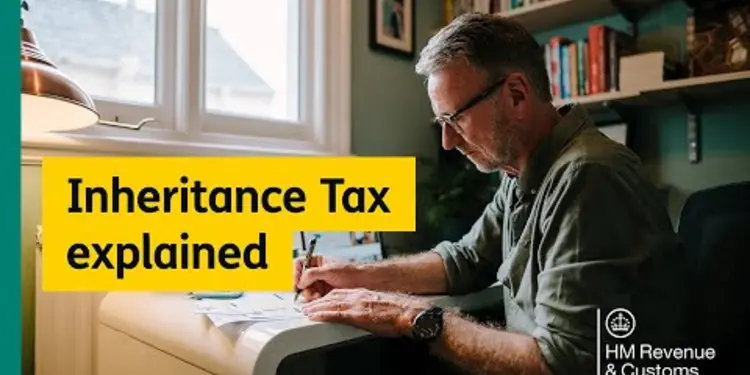
Find Help
More Items From Ergsy search
-

What is the Wealth Tax in the UK?
Relevance: 100%
-

What is the wealth tax in the UK?
Relevance: 100%
-

What is a Wealth Tax?
Relevance: 100%
-

What is the objective of a wealth tax?
Relevance: 96%
-

Would a wealth tax replace other taxes in the UK?
Relevance: 95%
-

Could a wealth tax encourage tax avoidance?
Relevance: 95%
-

Can a wealth tax be levied annually?
Relevance: 92%
-

How is a wealth tax typically calculated?
Relevance: 92%
-

Has the UK ever had a wealth tax?
Relevance: 92%
-

Why doesn't the UK have a wealth tax?
Relevance: 92%
-

Who is typically subject to a wealth tax?
Relevance: 92%
-

What arguments are made for a wealth tax in the UK?
Relevance: 92%
-

What are the challenges of implementing a wealth tax?
Relevance: 91%
-

How does a wealth tax differ from an income tax?
Relevance: 91%
-

What are the administrative costs of a wealth tax?
Relevance: 91%
-

Are there any countries currently implementing a wealth tax?
Relevance: 90%
-

What are common arguments in favor of a wealth tax?
Relevance: 90%
-

Can a wealth tax impact economic behavior?
Relevance: 89%
-

How do economists view the impact of wealth taxes?
Relevance: 89%
-

How might a wealth tax impact inequality in the UK?
Relevance: 89%
-

How do other countries implement a wealth tax?
Relevance: 89%
-

Could a wealth tax affect economic growth in the UK?
Relevance: 89%
-

Is real estate included in wealth tax calculations?
Relevance: 89%
-

Would a wealth tax apply to foreign assets?
Relevance: 88%
-

Has any political party in the UK supported a wealth tax?
Relevance: 87%
-

How might a wealth tax affect wealthy individuals?
Relevance: 86%
-

How do governments ensure compliance with wealth tax laws?
Relevance: 86%
-

How does council tax relate to wealth in the UK?
Relevance: 81%
-

What taxes in the UK target wealth?
Relevance: 67%
-

Do wealth taxes differ between countries?
Relevance: 65%
-

What are common criticisms of a wealth tax?
Relevance: 64%
-

Are there alternatives to a wealth tax for addressing inequality?
Relevance: 64%
-

What exemptions are commonly associated with wealth taxes?
Relevance: 62%
-

Do public opinion polls support a wealth tax in the UK?
Relevance: 61%
-

What types of assets are typically subject to a wealth tax?
Relevance: 59%
-

Has the idea of a wealth tax been discussed in political debates?
Relevance: 57%
-

Is there a proposal for a wealth tax in the UK?
Relevance: 49%
-

Are there professional advisors for inheritance tax planning?
Relevance: 47%
-

What is Inheritance Tax?
Relevance: 45%
-

Is there a difference between inheritance tax and estate tax?
Relevance: 43%
Introduction to Wealth Tax
A wealth tax is a levy on the total value of personal assets, including real estate, cash, stocks, bonds, and other financial investments. It is distinct from income tax, which is based on earnings. The concept of a wealth tax has been a topic of debate and discussion in various countries, including the UK, particularly as a way to address growing economic inequality and fund public services.
How Does a Wealth Tax Work?
A wealth tax is typically imposed annually on the net value of assets owned by individuals or households above a certain threshold. The goal is to tax the wealthiest individuals and narrow the wealth gap by redistributing wealth more evenly across society. The specifics of how it operates, such as the rate of tax and the types of assets included, can vary significantly from country to country.
Current Context in the UK
As of now, the UK does not impose an annual wealth tax. Instead, the UK relies on taxes such as income tax, capital gains tax, and inheritance tax to tax wealth. However, the idea of introducing a wealth tax has been periodically discussed, particularly following economic crises or periods of public spending cuts, as a potential tool to raise revenue and address inequalities.
Feasibility of an Annual Wealth Tax in the UK
The feasibility of levying an annual wealth tax in the UK involves several considerations. Firstly, it would require comprehensive assessment and valuation of assets, an undertaking that could prove costly and complex. Additionally, determining the threshold and rate of tax could be contentious, requiring careful balance to ensure it is perceived as fair and does not lead to capital flight or tax evasion.
Arguments For and Against
Proponents of a wealth tax argue that it could help reduce inequality, raise substantial revenue for public investment, and ensure that the wealthiest contribute fairly to society. Opponents, however, warn that it might drive wealthy individuals and businesses to relocate to countries with more favorable tax regimes, potentially reducing investment and economic growth within the UK.
Examples from Other Countries
Several countries, including France, Spain, and Norway, have experimented with wealth taxes, with varying degrees of success. France, for example, had a wealth tax for many years but later replaced it with a tax on real estate wealth. These international experiences offer valuable lessons for the UK in designing and implementing an effective wealth tax.
Conclusion
Whether an annual wealth tax can be effectively levied in the UK remains a topic of debate among policymakers, economists, and the public. While it presents a potential avenue for addressing inequality and generating revenue, it also raises practical challenges and risks that need careful consideration.
Introduction to Wealth Tax
A wealth tax is a tax on what people own, like houses, money, stocks, and other investments. It is different from income tax, which is a tax on what people earn. People talk about wealth tax in many countries, like the UK, as a way to help reduce the gap between rich and poor and to pay for public services.
How Does a Wealth Tax Work?
Wealth tax is usually charged every year on the net value of what people own over a certain amount. The aim is to tax rich people more and help spread wealth more evenly in society. The details, like how much tax is charged and what things are taxed, can be different in each country.
Current Context in the UK
Right now, the UK doesn't have a yearly wealth tax. Instead, the UK uses taxes like income tax, capital gains tax, and inheritance tax to collect money from wealth. But sometimes people talk about starting a wealth tax in the UK, especially after hard economic times or when the government is cutting spending, as a way to get more money and reduce inequality.
Feasibility of an Annual Wealth Tax in the UK
Having a yearly wealth tax in the UK would need a lot of work. First, figuring out what everyone owns could be expensive and difficult. Also, deciding how much wealth to tax and what the tax rate should be might be tricky. It needs to be done in a way that is fair and doesn't make rich people take their money to other countries.
Arguments For and Against
People who support a wealth tax say it could lower inequality, bring in lots of money for the government, and make sure rich people pay their fair share. But others worry that rich people and businesses might move to other countries where they pay less tax, which could hurt investment and the economy in the UK.
Examples from Other Countries
Countries like France, Spain, and Norway have tried wealth taxes, with different results. For example, France had a wealth tax for many years but later changed it to only tax real estate. These countries' experiences can teach the UK how to create and use a wealth tax successfully.
Conclusion
Whether the UK will start a yearly wealth tax is still being talked about by politicians, economists, and the public. While it could help fight inequality and raise money, it also comes with challenges and risks that need to be thought about carefully.
Frequently Asked Questions
What is a wealth tax?
A wealth tax is a tax on the total value of personal assets, including real estate, cash, investments, and other possessions. It is generally levied on individuals with assets exceeding a certain threshold.
Can a wealth tax be levied annually?
Yes, a wealth tax can be structured to be levied annually. Many proposals for wealth taxes suggest an annual assessment and taxation of a person's total net wealth.
How is the wealth tax calculated?
The wealth tax is calculated based on the total market value of all assets owned by an individual or household, minus any liabilities, at a particular point in time, usually on an annual basis.
What are the challenges in implementing an annual wealth tax?
Challenges include accurate asset valuation, compliance and enforcement, administrative costs, and potential capital flight or tax avoidance strategies by wealthy individuals.
Do any countries currently levy an annual wealth tax?
Yes, several countries have implemented annual wealth taxes in the past, including Switzerland, Norway, and Spain, although the specifics and thresholds vary by country.
What are the benefits of an annual wealth tax?
Benefits include reducing wealth inequality, generating government revenue, and potentially encouraging more productive use of assets.
Can an annual wealth tax discourage savings and investment?
Critics argue that an annual wealth tax might discourage saving and investment by reducing the returns on accumulated wealth. This could potentially impact economic growth.
How does an annual wealth tax differ from a property tax?
While both are recurring taxes, a property tax is levied on real estate specifically, whereas a wealth tax applies to all types of assets, including financial investments and personal property.
What role does asset valuation play in an annual wealth tax?
Asset valuation is crucial because the tax is based on the market value of assets. Difficulty in accurately assessing the value can lead to disputes and complexity in tax administration.
What exemptions might apply to an annual wealth tax?
Exemptions could be applied to certain types of assets or wealth below a specified threshold to protect middle-class families and small businesses.
Can an annual wealth tax be progressive?
Yes, an annual wealth tax can be structured progressively, with higher rates imposed on higher levels of wealth to ensure that the tax burden increases with increased ability to pay.
How do governments enforce an annual wealth tax?
Governments enforce a wealth tax through rigorous reporting requirements and audits. Enforcement relies on comprehensive asset disclosure by taxpayers.
Are there any constitutional considerations for an annual wealth tax?
In some countries, implementing a wealth tax may require constitutional amendments or legal challenges, especially if it conflicts with property rights protections.
Do wealth taxes reduce economic inequality?
Wealth taxes can reduce economic inequality by redistributing wealth and restraining the accumulation of wealth among the richest individuals.
How might an annual wealth tax affect corporate ownership?
An annual wealth tax might impact corporate ownership if individuals seek to restructure ownership to avoid taxation or if it influences decisions regarding investments and corporate strategy.
What is the impact of an annual wealth tax on charitable contributions?
Depending on the tax rules, an annual wealth tax could incentivize or disincentivize charitable contributions, particularly if charitable donations are deductible from the wealth tax base.
What are some criticisms of an annual wealth tax?
Criticisms include potential economic inefficiency, high administrative costs, and the risk of capital flight as wealthy individuals move assets abroad to avoid taxation.
Can an annual wealth tax lead to double taxation?
Yes, an annual wealth tax can result in double taxation if the assets are already subject to other forms of taxation, such as income taxes or property taxes.
Has any country repealed an annual wealth tax?
Yes, several countries have repealed wealth taxes due to challenges such as capital flight, economic distortions, and revenue shortfalls, including France and Denmark.
How does technology influence the administration of an annual wealth tax?
Technology can aid the administration of an annual wealth tax through improved data collection and analysis, asset tracking, and taxpayer reporting systems to enhance compliance and reduce evasion.
What is a wealth tax?
A wealth tax is money that people with a lot of money must pay to the government. It is like giving part of their money to help everyone. This tax helps pay for things like schools, roads, and hospitals.
If you find reading hard, you can ask someone to explain it or use a computer to read out loud for you. Understanding wealth taxes can take time, so it's ok to ask questions.
A wealth tax is a tax on all the things you own, like houses, money, stocks, and other things you have. People pay this tax if what they own is worth more than a certain amount of money.
Can the government collect a wealth tax every year?
Wealth tax means paying money on the things you own, like a house or a car.
Yes, the government can ask people to pay this tax every year. They check what you own each year and see how much tax you need to pay.
If you need help understanding this, you can:
- Ask someone you trust to explain it to you.
- Use pictures or simple charts to see how it works.
- Use online tools that read the text out loud to you.
Yes, a wealth tax can be taken each year. Many ideas for wealth taxes suggest looking at someone's total wealth every year and then taxing it.
How do they figure out the wealth tax?
The wealth tax is a tax on all the things someone owns, like a house or a car. It looks at how much all these things are worth and takes away any money the person owes. This is usually checked once a year.
What makes it hard to set up a yearly wealth tax?
A wealth tax is money rich people pay to the government each year. Making this tax work can be tricky. Here are some reasons why:
- Finding out how much money and things a person really has can be tough.
- Some rich people might try to hide what they own.
- The rules for the tax need to be very clear, so everyone knows how it works.
- Collecting the tax must be fair, making sure everyone pays their share.
To help understand more about taxes, use pictures or videos. Ask someone to explain things if you're not sure.
Problems include figuring out the true value of things people own, following and enforcing rules, handling costs for managing everything, and rich people finding ways to move money or avoid paying taxes.
Do any countries have a yearly wealth tax?
Some countries ask people with lots of money to pay a special tax each year. This is called a wealth tax.
If you find reading hard, you can use tools like text-to-speech to listen instead of reading. Pictures and simple charts might also help.
Yes, some countries have taxes on wealth each year. These countries include Switzerland, Norway, and Spain. Each country has different rules for this tax.
What are the good things about a yearly wealth tax?
A yearly wealth tax means paying money to the government every year based on how much money or valuable things you have.
Here are some good things about it:
- Helps share wealth: It makes sure everyone has a fair share of money by asking rich people to help more.
- More money for the community: The tax money can be used for schools, hospitals, and parks to help everyone.
- Makes things fair: It can help make things more equal between people with a lot of money and those with less.
Helpful Tips:
- Use pictures or charts to understand better.
- Ask someone to explain if it's hard to understand.
There are good things about this. It can help make money more fair for everyone, bring money to the government, and make people use their things in a smarter way.
Will a yearly wealth tax stop people from saving and investing money?
A wealth tax is money that people with a lot of money must pay every year.
This question asks if this tax makes people want to save less money or invest less.
If you find this hard to understand, you can:
- Ask someone to explain it using simple words.
- Look for videos or images about wealth tax.
- Use apps that help read and explain hard words.
Some people think that a yearly wealth tax could make people save and invest less. This is because the tax might take away some money they earn from what they own. This could hurt the growth of the economy.
What is the difference between a yearly wealth tax and a property tax?
A yearly wealth tax is a way for the government to get money. They check how much money and valuable things a person has, like savings, shares, or jewelry. Then, they ask for a little bit of that in tax every year.
A property tax is different. It's a tax on buildings and land, like your home. You pay this tax if you own any property.
Tools and tips:
- Use a calculator if you need help with numbers.
- Ask someone you trust if you have questions.
- Look for pictures or videos about taxes for better understanding.
Both property tax and wealth tax are taxes you pay again and again. A property tax is a tax you pay on your house or land. A wealth tax is a tax you pay on everything you own, like money you have saved and things you own.
What is the job of figuring out value in a yearly wealth tax?
When there is a wealth tax, people have to pay money to the government based on how much money or valuable things they have.
Asset valuation means figuring out how much your things are worth. This is important because it helps decide how much tax you need to pay.
Here are some tools to help:
- Ask someone you trust to explain it.
- Use a calculator to add up the value of your things.
If you need help, you can talk to a tax expert or a friend.
It is very important to know how much things are worth. This is because the tax you pay depends on how much your things are worth in money. If people can't tell how much things are worth, it can cause arguments and make paying taxes hard.
To help, you can use tools like picture charts or ask a family member for help. Breaking information into small steps can make it easier to understand.
What are the rules that might let you skip a yearly wealth tax?
Some things, like certain types of money or property, might not be taxed if they are below a certain amount. This is to help families that don't have a lot of money and small businesses.
Can a yearly wealth tax help everyone fairly?
A wealth tax is when people pay a little bit of money on things they own, like houses or money in the bank.
Progressive tax means people with more money pay a bigger part than people with less money. It's like sharing to make it fair.
Tools to help:
- Use pictures or diagrams to show how the tax works.
- Listen to someone explain what a wealth tax is about.
Yes, a yearly wealth tax can be made fair. People with more money pay a higher tax rate. This means the tax matches their ability to pay.
How do governments make sure people pay a yearly wealth tax?
Governments have a few ways to make sure people pay their wealth tax each year: 1. **Rules and Laws**: Governments make rules that say how the wealth tax works. People must follow these rules. 2. **Tax Forms**: People fill out forms to show how much money and stuff they have, like houses and cars. This helps the government know how much tax they should pay. 3. **Checking**: Sometimes, the government checks to make sure people are telling the truth on their forms. This is called an audit. 4. **Help and Support**: There are tools and helpers, like tax advisors or online guides, that can help people with their taxes. 5. **Penalties**: If someone doesn't pay their tax, they might have to pay a fine or extra money. These steps help the government collect the wealth tax each year.Governments make sure people pay a wealth tax by having them report what they own. They check this carefully to make sure it's right.
Can we have a yearly tax on wealth?
When deciding if we can have a yearly tax on wealth, we need to think about some important rules.
These rules are called 'constitutional considerations.'
If you find it tricky to read this, ask someone for help. You can also use tools that read the text out loud for you.
In some places, to start a wealth tax, the rules might have to change. This could be because the tax goes against laws that protect people's things.
Do wealth taxes make money fairer?
Wealth taxes help make things fair. They take a little money from rich people and use it to help everyone. This way, the gap between rich and poor is smaller.
What happens to business ownership if there is a yearly wealth tax?
A yearly tax on wealth could change who owns businesses. People might change how they own their companies to pay less tax. It could also change how they decide to invest and run their business.
Helpful Tools:
- Use pictures or charts to explain ideas.
- Break down information into small, easy steps.
- Use simple words and short sentences.
How does a yearly wealth tax affect giving to charity?
Let's talk about what happens when the government takes a bit of money every year from people who have a lot. This is called a wealth tax. We want to know if this changes how much people give to help others, like giving money to charity.
Here are some tips for understanding this:
- Think about how a wealth tax works. People with more money pay more tax.
- Consider if this means they have less money to give to charity.
- Maybe it also encourages people to give more to get tax benefits.
If reading is tricky, you can:
- Ask someone who's good with words to help explain.
- Use a computer or tablet to read out loud to you.
- Draw a picture to help you remember.
A yearly wealth tax can change how people give to charity. It might make them want to give more or less. This depends on the tax rules. If giving to charity helps them pay less tax, they might give more.
What do some people not like about a yearly wealth tax?
People say there could be money problems, that it might cost a lot to run, and that rich people might take their money to other countries to not pay taxes.
Does a yearly wealth tax mean paying tax twice?
Yes, a wealth tax every year means you pay tax twice if your things are already taxed, like with income tax or property tax.
Has any country stopped a yearly wealth tax?
Some countries used to have a tax where people pay money every year if they own a lot of stuff, like houses or money. This is called a "wealth tax." But some countries decided to stop this tax and don't do it anymore.
If reading is hard, try using a tool that reads text out loud. It can help you understand better.
Yes, some countries have stopped using wealth taxes. This is because they had problems like money moving to other places, changes in the economy, and not enough money coming in. France and Denmark are examples of these countries.
How does technology help manage a yearly wealth tax?
Technology can make handling a yearly wealth tax easier. It can help by:
- Keeping track of who needs to pay the tax.
- Making calculations faster and more accurate.
- Letting people pay online easily.
- Helping the government check that everyone is paying the right amount.
Use tools like simple calculators and online forms to make things easier. Look for videos or guides that explain the steps one by one.
Technology can help collect and look at data for a yearly wealth tax. It helps track what people own and make sure they pay what they should. This way, people can't avoid paying taxes.
Useful Links
Have you found an error, or do you have a link or some information you would like to share? Please let us know using the form below.
-->
This website offers general information and is not a substitute for professional advice.
Always seek guidance from qualified professionals.
If you have any medical concerns or need urgent help, contact a healthcare professional or emergency services immediately.
Some of this content was generated with AI assistance. We’ve done our best to keep it accurate, helpful, and human-friendly.
- Ergsy carfully checks the information in the videos we provide here.
- Videos shown by Youtube after a video has completed, have NOT been reviewed by ERGSY.
- To view, click the arrow in centre of video.
- Most of the videos you find here will have subtitles and/or closed captions available.
- You may need to turn these on, and choose your preferred language.
- Go to the video you'd like to watch.
- If closed captions (CC) are available, settings will be visible on the bottom right of the video player.
- To turn on Captions, click settings .
- To turn off Captions, click settings again.
More Items From Ergsy search
-

What is the Wealth Tax in the UK?
Relevance: 100%
-

What is the wealth tax in the UK?
Relevance: 100%
-

What is a Wealth Tax?
Relevance: 100%
-

What is the objective of a wealth tax?
Relevance: 96%
-

Would a wealth tax replace other taxes in the UK?
Relevance: 95%
-

Could a wealth tax encourage tax avoidance?
Relevance: 95%
-

Can a wealth tax be levied annually?
Relevance: 92%
-

How is a wealth tax typically calculated?
Relevance: 92%
-

Has the UK ever had a wealth tax?
Relevance: 92%
-

Why doesn't the UK have a wealth tax?
Relevance: 92%
-

Who is typically subject to a wealth tax?
Relevance: 92%
-

What arguments are made for a wealth tax in the UK?
Relevance: 92%
-

What are the challenges of implementing a wealth tax?
Relevance: 91%
-

How does a wealth tax differ from an income tax?
Relevance: 91%
-

What are the administrative costs of a wealth tax?
Relevance: 91%
-

Are there any countries currently implementing a wealth tax?
Relevance: 90%
-

What are common arguments in favor of a wealth tax?
Relevance: 90%
-

Can a wealth tax impact economic behavior?
Relevance: 89%
-

How do economists view the impact of wealth taxes?
Relevance: 89%
-

How might a wealth tax impact inequality in the UK?
Relevance: 89%
-

How do other countries implement a wealth tax?
Relevance: 89%
-

Could a wealth tax affect economic growth in the UK?
Relevance: 89%
-

Is real estate included in wealth tax calculations?
Relevance: 89%
-

Would a wealth tax apply to foreign assets?
Relevance: 88%
-

Has any political party in the UK supported a wealth tax?
Relevance: 87%
-

How might a wealth tax affect wealthy individuals?
Relevance: 86%
-

How do governments ensure compliance with wealth tax laws?
Relevance: 86%
-

How does council tax relate to wealth in the UK?
Relevance: 81%
-

What taxes in the UK target wealth?
Relevance: 67%
-

Do wealth taxes differ between countries?
Relevance: 65%
-

What are common criticisms of a wealth tax?
Relevance: 64%
-

Are there alternatives to a wealth tax for addressing inequality?
Relevance: 64%
-

What exemptions are commonly associated with wealth taxes?
Relevance: 62%
-

Do public opinion polls support a wealth tax in the UK?
Relevance: 61%
-

What types of assets are typically subject to a wealth tax?
Relevance: 59%
-

Has the idea of a wealth tax been discussed in political debates?
Relevance: 57%
-

Is there a proposal for a wealth tax in the UK?
Relevance: 49%
-

Are there professional advisors for inheritance tax planning?
Relevance: 47%
-

What is Inheritance Tax?
Relevance: 45%
-

Is there a difference between inheritance tax and estate tax?
Relevance: 43%


